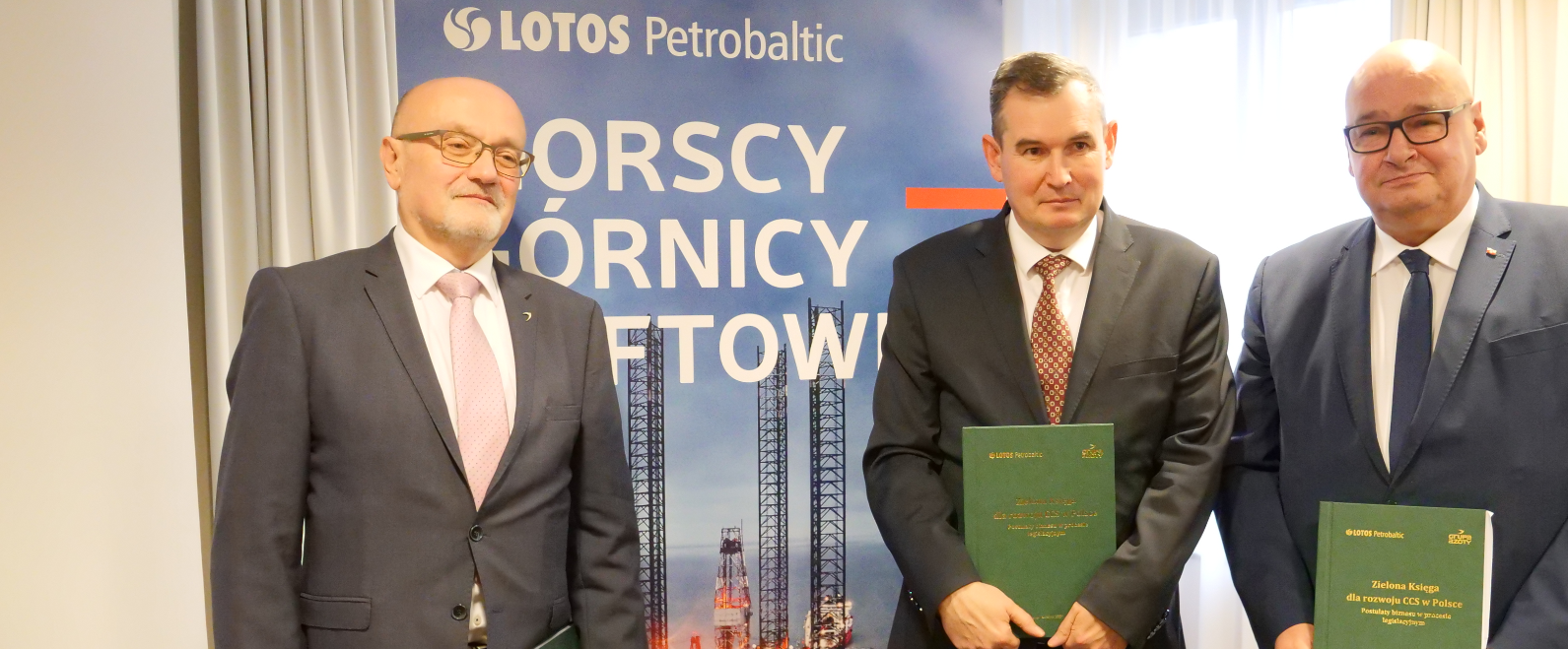
On November 2nd 2021, LOTOS Petrobaltic and its partners Grupa LOTOS and Grupa Azoty presented a set of recommendations on legislative changes that would enable the deployment in Poland of large-scale commercial carbon capture and storage (CCS) projects.
The document was also submitted to the Ministry of Climate and Environment, which launched related public consultation on October 25th 2021.
‘Green Paper for CCS development in Poland. Business proposals in the legislative process’ includes recommendations as to changes that would be needed in the generally applicable laws (both statutes and regulations). Enacted in 2014, the existing law that governs these activities is incompatible with the current state of knowledge or progress made to date in science and technology. The severity of the effects of global warming also calls for urgent action, which however may only be taken in a conducive legal environment. Aware of that, LOTOS Petrobaltic set up a working group, which – with the support of experts from Grupa LOTOS and Grupa Azoty – prepared a programme document with a description of identified legal issues hindering CCS activities and with proposals on how to resolve them.
“We are aware that the energy transition is a historic challenge for Poland. In our opinion, the CCS technology is necessary for its effective implementation that will ensure Poland's energy security and minimise the imminent social impacts of decarbonisation. Therefore, we decided to announce proposals to enable the implementation and development of CCS in Poland,” emphasises Grzegorz Strzelczyk, President of the Management Board of LOTOS Petrobaltic.
Part I of the paper contains draft new wording of the regulations that would govern CCS activities (the Geological and Mining Law, the Energy Law, the Act on Trading in Greenhouse Gas Emission Allowances, etc.), as well as suggestions to repeal some of the current regulations. It also includes analyses aimed to initiate discussion on new legal institutions that the authors believe should be established. The conclusions and recommendations of the Green Paper are based on a simulation, contained in Part II, of a CCS project in the B3 hydrocarbon field within Poland’s exclusive economic zone.
“Grupa LOTOS is taking a number of initiatives to mitigate the environmental impact of its business. We are carrying out projects to improve our energy efficiency and develop our alternative fuel business. At the same time, we are engaging in projects to further new technologies, such as CCS. This is the only right direction to take given the accelerating energy transition,” adds Jarosław Wróbel, Vice President of the Management Board, Chief Investment and Innovation Officer, of Grupa LOTOS.
“Grupa Azoty has just published its strategy for 2021–2030, which allocates a significant portion of R&D resources to climate-related objectives. The new R&D projects will focus mainly on biodegradable plastics, circular economy solutions, and CCS. The set of recommendations presented today is an important step towards implementation of the CCS technology, which is a crucial element of an effective energy transition,” says Grzegorz Kądzielawski, Vice President of the Management Board of Grupa Azoty S.A.
Climate changes caused, among other things, by greenhouse gas emissions are a global challenge. With the power generation industry relying on coal, Poland emits approximately 320 million tonnes of carbon dioxide per year into the air. The international commitments to which Poland has also subscribed lay down strict requirements for emission reduction by 2050. One of the methods that can help achieve the reduction targets by avoiding CO2 emissions into the atmosphere while ensuring that the energy generation and industrial operations can be continued is carbon capture and storage.
The CCS technology is already being implemented by such leading global economies asthe US, China, Norway, France, and the Netherlands. Preliminary estimates indicate that the capacity of Poland’s geological formations suitable for CCS is hundreds of millions of tonnes. Their optimal utilisation could help to save billions of złoty by those Polish companies which release CO2 into the air and have to buy emission allowances today.
